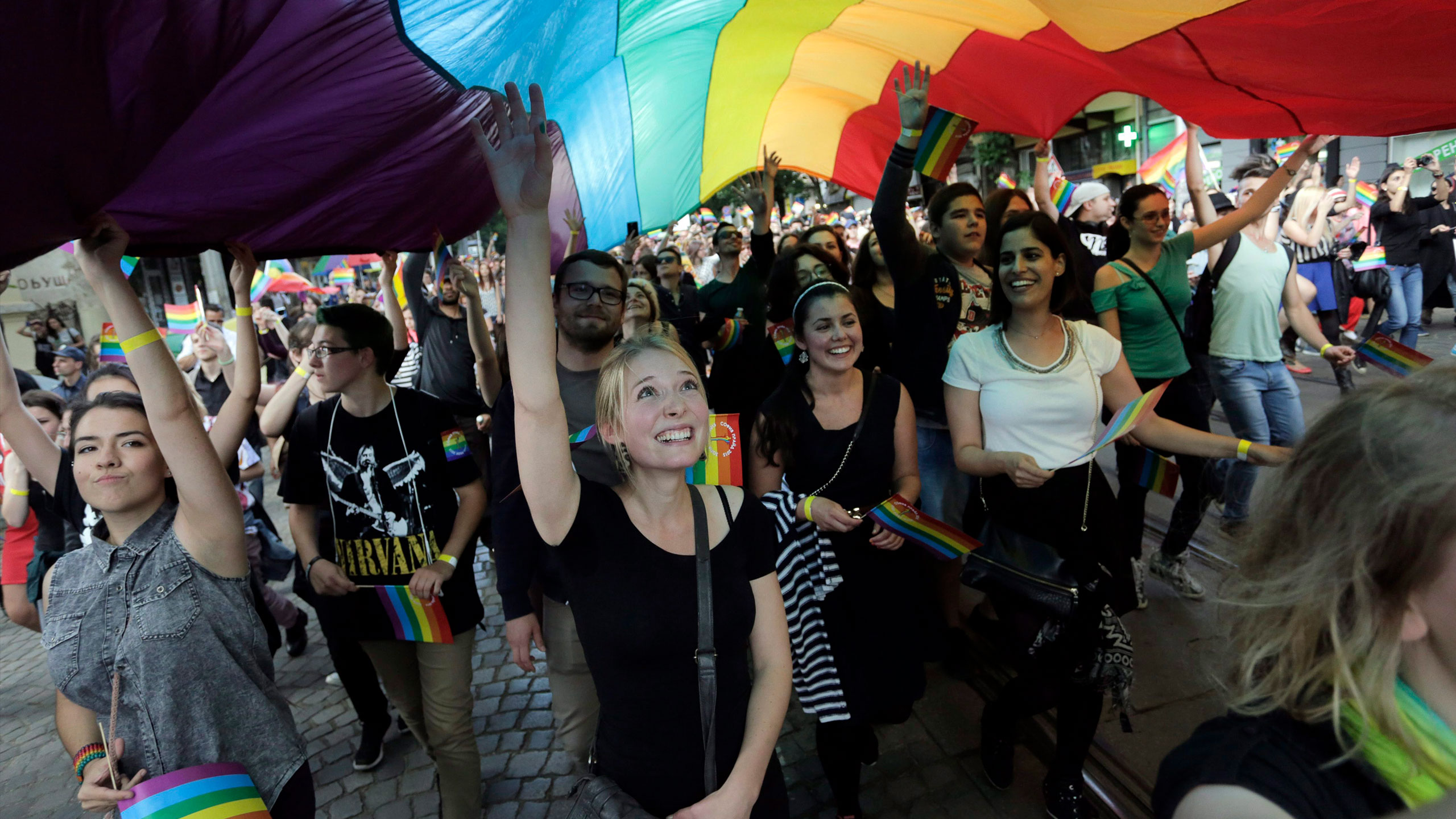The European Union’s top court has ruled that the child of a same-sex couple in any of its member countries must be recognized as the legal descendant of both parents. The ruling from the EU’s Court of Justice could have profound implications for the 11 EU states that do not allow same-sex couples to wed, such as Romania and the Czech Republic.
On Dec. 14, the European Court of Justice (ECJ) ruled that refusing to extend relationship recognition to same-sex couples also affects the rights granted to their children, as CBS News reported.
The child at the centre of the case is Sara, a young girl born in Spain in 2019 to two mothers. Sara’s parents are from Bulgaria and the U.K. territory of Gibraltar, respectively. The couple was not able to pursue British citizenship due to 1981 laws forbidding residents of Gibraltar from conferring citizenship to their children, according to the Washington Post. And under Spanish law, children born to non-citizen parents are not granted that citizenship either.
That left Bulgarian citizenship as the only option, but Bulgaria doesn’t recognize same-sex marriage. When Sara’s mothers tried to file for a birth certificate in the country’s capital of Sofia, they were denied. The birth certificate paperwork reportedly only had one box for “mother” and one for “father.”
Sara was left at risk of statelessness: as a person holding no citizenship in any country, she could not travel beyond the borders of Spain or visit either of her mothers’ home countries. And her access to social security, education and medical care while in limbo in Spain was limited, according to the International Lesbian, Gay, Bisexual, Trans and Intersex Association (ILGA), the LGBTQ+ advocacy group that advised on Sara’s case.
By refusing to grant her citizenship, the ECJ ruled that Bulgaria was restricting her right to freedom of movement as a citizen of the EU.
“This is a long-awaited step ahead for us but also a huge step for all LGBT families in Bulgaria and Europe.”
“In that regard, as EU law currently stands, a person’s status, which is relevant to the rules on marriage and parentage, is a matter that falls within the competence of the member states, and EU law does not detract from that competence,” the court claimed in its ruling.
Sara’s mothers welcomed the ruling, which means they will finally be able to leave Spain and see their families.
“We are thrilled about the decision and cannot wait to get Sara her documentation and finally be able to see our families after more than two years,” the parents said in a press release. “It is important for us to be a family, not only in Spain but in any country in Europe and finally it might happen. This is a long-awaited step ahead for us but also a huge step for all LGBT families in Bulgaria and Europe.”
The win could have a major impact on LGBTQ+ rights in Europe. In 11 EU member states, a child cannot have two women or two men as their parents, but this decision potentially lays the foundation for further legal gains in nations such as Lithuania, Hungary and Poland. Hungary passed a law banning same-sex adoptions last December amid its ongoing anti-LGBTQ+ crackdown, while Polish authorities have accused the EU of attempting to “force” them to recognize marriage equality.
This case follows a similarly historic 2018 decision regarding the legitimacy of same-sex marriages throughout the EU. In that case, the ECJ ruled that couples legally married or registered as partners in any member country had to be recognized as such across the entire federation.
Arpi Avetisyan, head of litigation at ILGA-Europe, said the recent ruling continues the trend toward progress by further defining what is legally meant by same-sex parentage in the EU.
“Parenthood established in one EU member state cannot be discarded by another, under the pretense of protecting the ‘national identity,’” Avetisyan said in a statement. “This is a true testament to the EU being a union of equality and we look forward to seeing rainbow families enjoying their right to freedom of movement and other fundamental rights on equal footing to anyone else.”


 Why you can trust Xtra
Why you can trust Xtra


